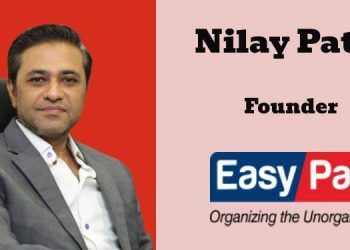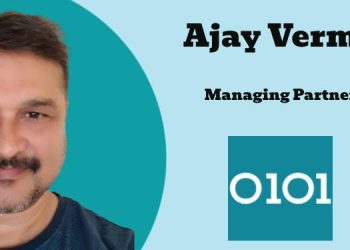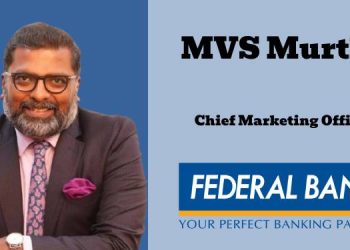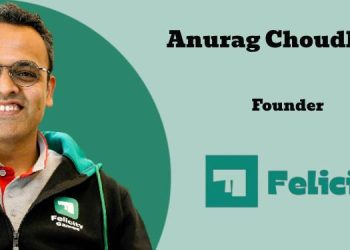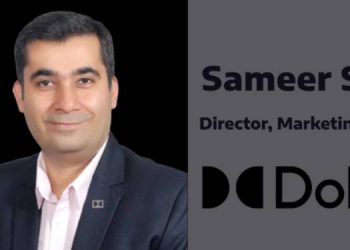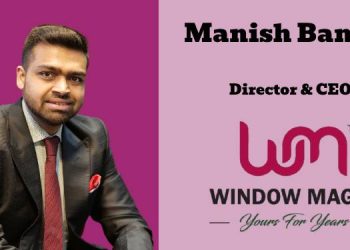Django Digital, an integrated digital solutions provider, was founded in 2019 by the entrepreneurial trio Shivang Shah, Vivek Shah, and Aashay Shah. The company emerged in an era of cluttered digital content, offering solutions that have since evolved to encompass performance media, influencer marketing, website development, branding, production, and social content—the backbone of its services.
In a strategic move reflecting its growth ambitions, Django appointed Natasha Bhatia as Chief Business Officer (CBO), making her the youngest CBO in India. Her appointment looks to underscore Django Digital’s forward-thinking approach and its commitment to innovative leadership.
In her role as CBO, she spearheads cutting-edge strategies aimed at increasing revenue, optimising operational efficiency, and forging strong partnerships through new business and growth opportunities. Her tenure has been marked by a visionary leadership style that integrates data-driven insights to align Django’s business goals with ever-evolving market trends.
Before stepping into her current role, she honed her skills at OML Entertainment, where she played a pivotal role in fostering client relationships across the European market for the global alcoholic beverage brand Bacardi. There, she worked with celebrities and influencers across Eastern and Central Europe for Bacardi and its portfolio brands in the market. Her expertise extends to Public Relations, which she developed during her time at Mullen Lowe Lintas’ PR division, working with prestigious clients like Etihad Airways, Marriott International, and Hurrem’s Turkish Cafe. He experience has given her deep insights into the Food & Beverage and Travel and Hospitality sectors, solidifying her reputation as a multifaceted business leader.
Medianews4u.com caught up with Django Chief Business Officer Natasha Bhatia.
Q. Django rebranded itself by dropping the word Digital. What factors prompted the move?
The word “Digital” served us well, but it started to feel limiting. While digital is still at our core, the conversations we’re having with clients now go far beyond that. We’re talking about brand strategy, purpose-driven storytelling, customer experiences, and even business consulting. The rebrand to just “Django” reflects who we are today — a brand-first agency. It’s not just a name change; it’s a mindset shift.
Q. How long did the rebranding process take and is the aim to improve client and industry perception?
It took us around six months, and it was a deeply introspective process. We involved our teams, partners, and clients because we wanted the new identity to be a genuine reflection of our growth.
Of course, perception matters, but this was more about ensuring our brand matched our ambition. We’re now positioned as partners who don’t just solve digital problems but drive long-term brand success.
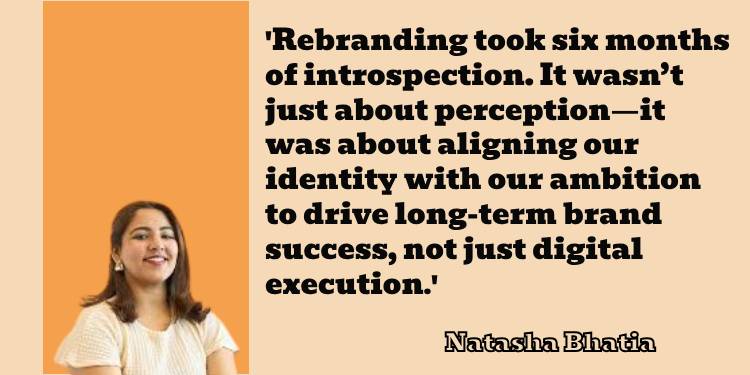
Q. What trends does Django see playing out in 2025 when it comes to digital marketing?
AI-powered personalisation is going to lead the way, but what’s equally exciting is how brands will use it responsibly to create genuine connections.
AR and VR will become everyday tools for immersive experiences. I also believe brands will lean harder into purpose-driven marketing — consumers want brands that stand for something.
Q. What role will data-powered insights play in audience targetting and segmentation?
Data has always been a powerful tool, but now it’s about using it smarter. At Django, we don’t just look at data for targeting; we use it to understand consumer emotions and predict behaviour.
This means hyper-personalised campaigns that are timely and relevant. And with AI in the mix, we can constantly optimise in real-time to ensure our clients see tangible results.
Q. The agency has collaborated with over 120 brands across multiple segments and industries. Could you talk about work done recently that stands out?
We recently bagged Swiggy Dineout as a retainer client – Django will enhance Swiggy Dineout’s social media presence by leading strategies and creating influencer-led campaigns.
We’ve also done some stellar work lately for Bergner Cookware with KOL Vikas Khanna and creating films for My11Circle during this cricket season.
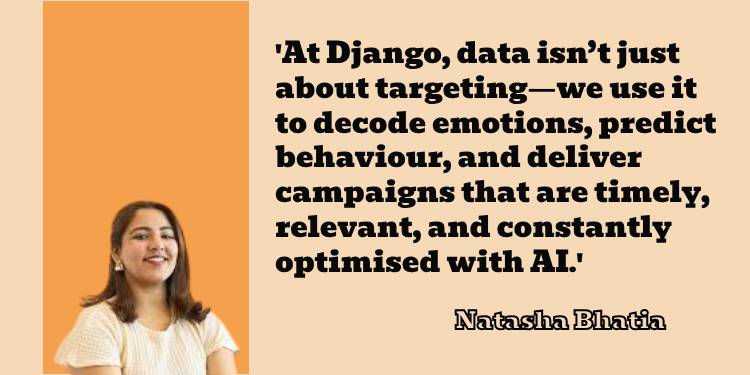
Q. Do the D2C brands have a better idea of how to use digital compared to legacy brands that may need some handholding?
D2C brands are naturally nimble — they experiment, learn fast, and double down on what works. Legacy brands, on the other hand, bring decades of brand equity and consumer trust.
Sure, they may need some guidance in the digital space, but when they’re willing to embrace innovation, the results are incredible. We’ve seen both types of brands succeed under our portfolio, and that’s where our role as a partner becomes invaluable.
Q. What role is AI playing in helping the agency provide better end-to-end solutions tailored to a client’s needs?
AI is a game changer. It allows us to predict consumer behavior, personalise content, and even refine messaging on the fly. But we don’t let AI take the wheel entirely — it’s a powerful co-pilot.
The human element of creativity and intuition is irreplaceable. Our teams use AI insights to build campaigns that truly resonate.
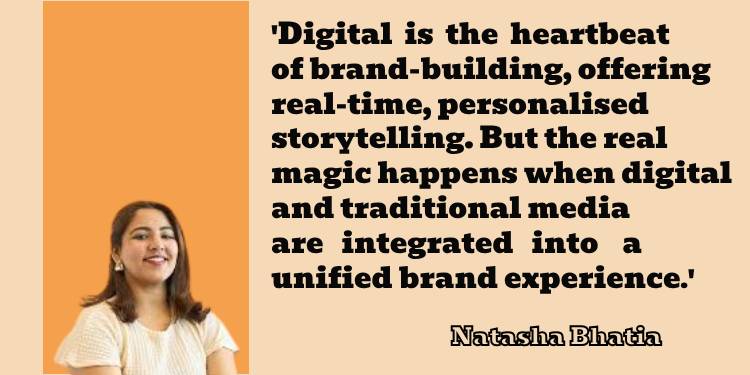
Q. After the ‘India’s Got Latent’ controversy are clients changing tack when it comes to influencer marketing?
Brands are much more cautious now and rightfully so. Authenticity is non-negotiable. At Django, we encourage clients to look beyond vanity metrics.
We emphasise building genuine partnerships with creators who share the brand’s values. Data still plays a key role, but so does alignment and transparency.
Q. Agency margins are increasingly getting squeezed. Does Django focus on linking its work to a client’s business outcome to command better remuneration?
Absolutely. We’ve moved away from traditional pricing models and work closely with clients on outcome-based metrics. Our focus is on proving real business impact, whether it’s in sales, brand awareness, or customer loyalty. When our clients grow, we grow. It’s a partnership, not just a transaction.
Q. With clients looking to enhance their brand image what role does digital usually play in the media mix?
Digital is the heartbeat of most campaigns today. It allows for personalised storytelling and real-time feedback, which makes it a powerful tool for brand building. That said, we believe in an integrated approach.
Traditional media still has its place, especially for mass reach. The magic happens when both work together seamlessly.
Q.This year the agency invested in Extra. What role will inorganic growth play for the agency?
Investing in Extra was a strategic move. Inorganic growth allows us to quickly expand our capabilities and tap into new markets. While organic growth will always be a focus, acquisitions bring fresh perspectives and specialised expertise, helping us stay ahead of the curve.
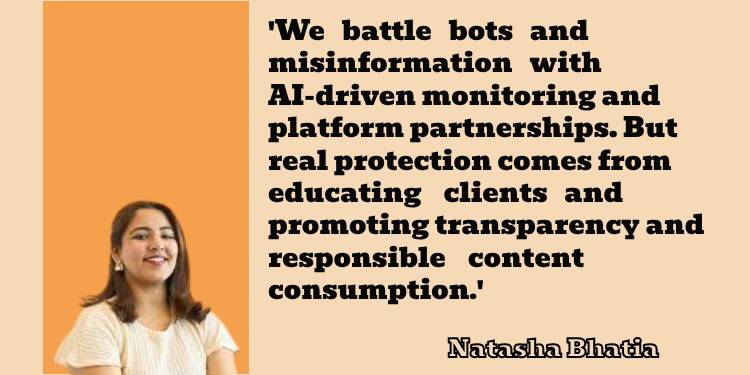
Q. In terms of social media management, how does the agency deal with challenges like bots, and fake information?
It’s a constant battle, but we’re prepared. We use AI-driven monitoring tools to detect bots and flag suspicious activity. More importantly, we work closely with platforms to ensure brand safety.
It’s also about educating clients and audiences — encouraging critical thinking and promoting responsible content consumption. Transparency is key, and that’s something we stand firmly by.


